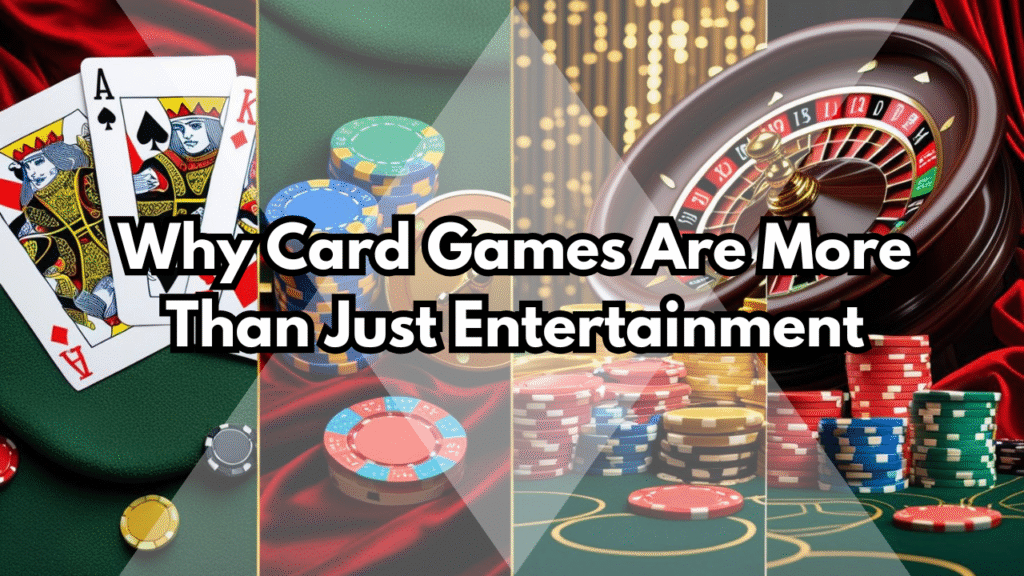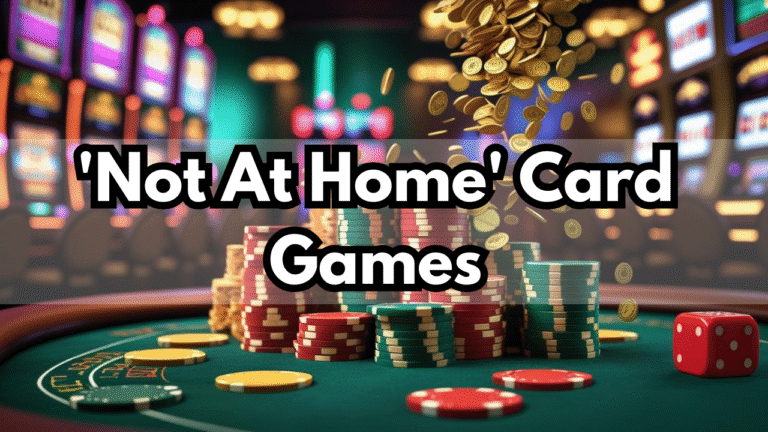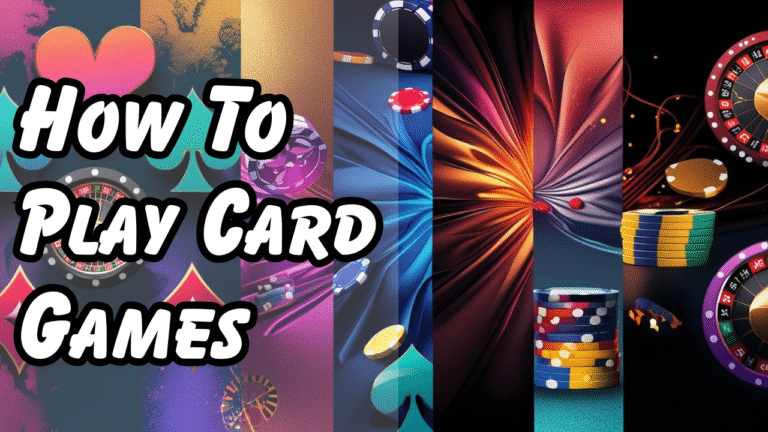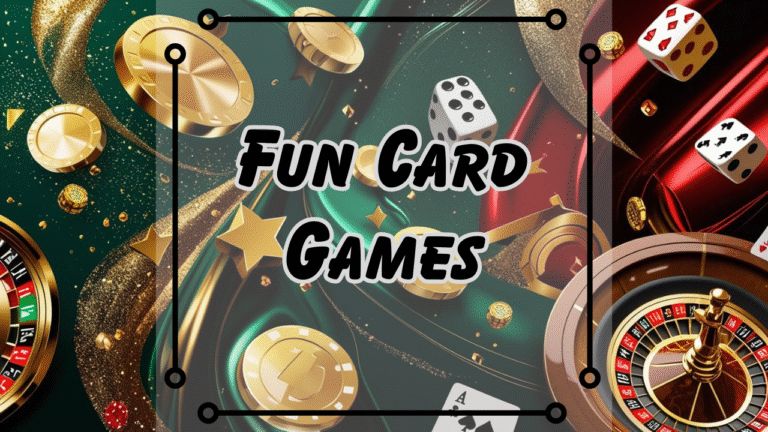You’ve probably never tried these different card games—they’re thrilling, unique, and insanely fun. Your next game night just got a serious upgrade!

Even in the digital age, card. games have persisted across many countries and ages. A deck of cards is a versatile tool for amusement, strategy, and human interactions; it has been used everywhere from formal European courts to casual home gatherings and cutting-edge gaming applications. In today’s fast-paced world, card games are more than just a way to relax; they can be tools for developing social skills, emotional intelligence, and mental toughness.
Playing different fun card games for groups games can give mental stimulation and unlimited entertainment to all, whether they are serious players, social players, or simply looking for worthwhile entertainment.
Why Card Games Are More Than Just Entertainment

fun card games for groups are not just meant for time-passing, as is generally thought. Their mental and psychological advantages have been brought into the limelight in various studies:
- party card games for friends such as bridge and poker, which demand rapid thinking, memory recall, and anticipation, can enhance concentration and memory.
- The players must strategize and consider elements such as probability and what the opponents could do. This enhances their thinking capabilities.
- Improved Social Relationships: Playing with several individuals at one time creates camaraderie, teamwork, and even healthy rivalry.
- Helps Relieve Stress: It is an excellent method of unwinding and refreshing one’s mind.
Top 9 Different Card Games You Should Know
1. Poker (Texas Hold ’em)
Poker makes players think analytically, bluff, and strategize, even though it is a game of luck. Live and internet-based, it boasts an enormous following worldwide.
2. Overhead
Bridge is a traditional two or more player game that challenges one’s reasoning ability and memory. Its intellectual challenge is the reason why it is widely enjoyed by scholars and elderly alike.
3. A game of Rummy
Rummy is an excellent game for quick minds and for recognizing patterns as it involves set and sequence grouping of best multiplayer card games. Two of its variants, Gin Rummy and Indian Rummy, are very popular.
4. Solitaire
A single-player game played largely online, Solitaire builds patience and strategy. It’s ideal for those who enjoy structured self-quizzes.
5. Uno
While technically a deck game, Uno’s quick, family-friendly action has made it popular globally. It enforces color and number identification, even in toddlers.
6. A heart
An avoidance game that is simple to learn but hard to excel in. It teaches players how to deal with losing hands well—a virtue that’s not valued enough but crucial.
7. Spades
Spades is liked by social and competitive players alike, being based on partnership and strategic bidding. It’s one of those games where psychology and communication are involved.
8. Euchre
Fewer well-known globally but cherished in parts of North America, Euchre is an instant, four-player game that combines chance and ability with a touch of luck-infused suspense.
9. Blackjack
While often associated with casinos, Blackjack is a math-based game that requires quick calculation and choice making, with some excellent probabilities lessons.

5 Steps to Mastery of Any Card Game
Learn the Rules Deeply
Look at the official rules or guides. The fundamentals are your foundation for growth.
Practice Begins with Practice
Use applications or social games to feel at ease with the mechanics and tempo of the game.
Learn Gameplay and Strategy
Watch expert games or analyze your game. Look for trends, mistakes, and strategy gaps.
Play against Better Players
Encourage better players to learn quicker. It’s the fastest means to improve your game.
Join Communities Forums, local clubs, and internet forums can help with support, advice, and companionship.
Question and Answer Session on Various Card Games
Q1. When it comes to card games which one is best for beginners?
Uno and Rummy are excellent starting points as they feature simple rules and engaging formats.
Q2. Do card games really improve brain function?
Yes. Bridge and Poker enhance memory, concentration, and decision-making—skills supported by cognitive psychology research.
Q3. Are software programs of card games helpful as learning aids?
Absolutely. Computer versions provide instant feedback, practice hours, and access to more players.
Q4. How long does it take to master a card game like Poker or Bridge?
It is a matter of the degree of participation. casual mastery might be accomplished in weeks, but competitive mastery could take months or years of study and practice.
Q5. What’s the most strategic card game?
Bridge and Poker are usually known as two of the most strategic due to their mix of risk calculation, psychology, memory, and probability.
Conclusion: Why Card Games Should Be a Part of Your Regimen
fun card games for groups are far more than mere flips of fate or lighthearted diversions. They are minute systems of strategy, intellect, and human interaction. Introducing even one such game to your daily routine can sharpen the mind, improve the mood, and create more substantial contacts with friends and loved ones.
Whether you’re looking for individual challenge or group play, there’s a card game that matches your objectives. Start playing today—not just for entertainment, but for the long-term cognitive and social rewards they offer.

Let me know if you’d prefer me to design it for use with a content management system (CMS) such as WordPress, a newsletter, or a social media teaser.






